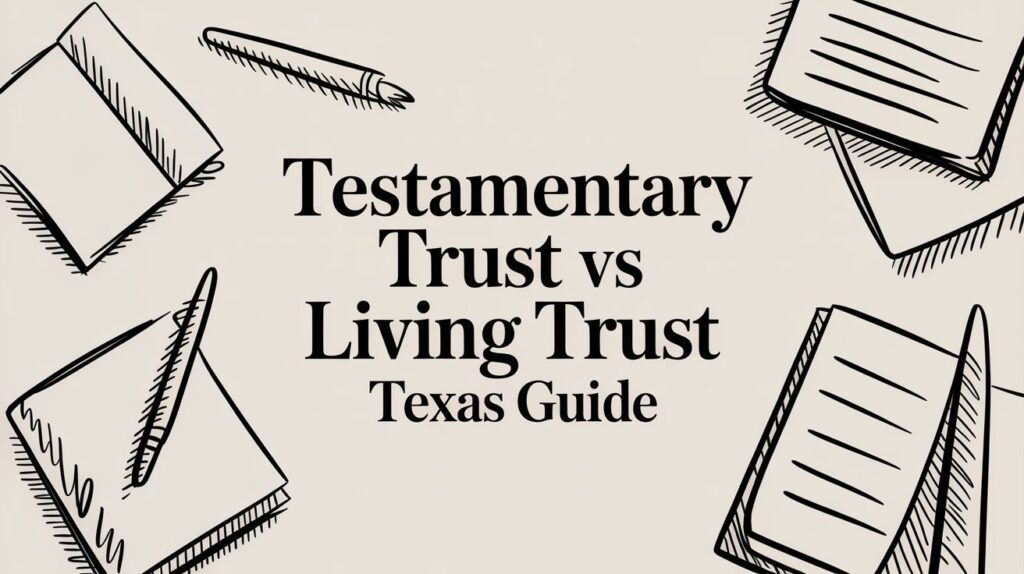Inheritance, the process by which assets and property are passed down from generation to generation, is profoundly significant in estate planning. It ensures the orderly transfer of wealth and reflects the deceased’s desires and intentions regarding the distribution of their estate.
In Texas, inheritance primarily occurs through two main methods: wills and intestacy laws. Wills allow individuals to specify how they wish their assets to be distributed after passing, providing a comprehensive outline of their inheritance wishes. On the other hand, intestacy laws come into effect when someone dies without a valid will, dictating how their estate will be distributed according to predetermined legal guidelines.
Understanding inheritance rights and obligations in Texas is essential for individuals and families alike. It empowers them to make informed decisions about their estate planning strategies and ensures that their wishes are carried out effectively. This guide aims to provide a comprehensive overview of inheritance laws and practices in Texas, offering valuable insights into wills, intestacy laws, and the rights and responsibilities of heirs and beneficiaries. By shedding light on these crucial aspects of estate planning, individuals can confidently and navigate the complexities of inheritance.
Inheritance through Wills
In Texas, inheritance through wills plays a crucial role in the distribution of assets upon an individual’s death. Here’s a breakdown of key elements related to inheritance through wills:
What is a Will?
A will is a legal document that outlines an individual’s wishes regarding the distribution of their assets and the appointment of guardians for minor children, among other matters, upon their death. It is vital for ensuring that one’s estate is distributed according to one’s preferences.
Key Elements of a Valid Will in Texas
In Texas, a valid will must meet certain requirements:
- Capacity: The testator (the person making the will) must be of sound mind and at least 18 years old.
- Intent: The testator must have the intention to create a will.
- Signature: The will must be signed by the testator or someone else in their direction and presence.
- Witnesses: The will must be witnessed by at least two competent witnesses who are at least 14 years old and not beneficiaries of the will.
- Format: While not strictly required, the will should be typewritten to avoid potential issues with interpretation.
Process of Probate in Texas
Probate is the legal process of administering an individual’s estate after death. In Texas, the probate process typically involves:
- Filing the will with the appropriate probate court.
- Appointment of an executor (if named in the will) or an administrator to manage the estate.
- Inventory and appraisal of assets.
- Payment of debts and taxes.
- The remaining assets are distributed to beneficiaries according to the terms of the will or state intestacy laws if there is no will.
Role of the Executor and the Court in Probate
The executor, named in the will, is responsible for carrying out the testator’s wishes as outlined in the will. They oversee the probate process, including asset distribution, debt payment, and legal proceedings. The probate court supervises the administration of the estate, ensuring that the executor fulfills their duties according to the law and the terms of the will.
- Testamentary Freedom: Texas upholds the principle of testamentary freedom, which grants individuals the right to distribute their assets as they see fit through a valid will. This means that a testator can choose beneficiaries, determine each beneficiary’s share, and make specific bequests, subject to certain legal limitations.
Understanding these aspects of inheritance through wills is essential for individuals in Texas to effectively plan for the distribution of their assets and ensure that their wishes are carried out after their passing.
Inheritance through Intestacy Laws
Intestacy occurs when someone dies without leaving a valid will or when the court deems their will invalid. Here, the distribution of the deceased person’s assets is governed by state intestacy laws rather than by their explicit instructions.
In Texas, intestacy laws establish a specific order of inheritance, prioritizing certain relatives over others. The distribution typically unfolds in the following manner:
- Spouse and Children: If the deceased had a surviving spouse but no children, the entire estate passes to the spouse. However, if there are surviving children from the marriage, the estate is divided between the spouse and the children. The spouse typically inherits a portion, while the remainder is divided equally among the children.
- Parents and Siblings: If the deceased person has no surviving spouse/children, the estate passes to their parents in equal shares. If only one parent survives, they inherit the entire estate. If the deceased has no surviving parents, the estate is divided equally among their siblings.
- Other Relatives: In the absence of a surviving spouse, children, parents, or siblings, the estate may pass to other relatives, such as nieces, nephews, grandparents, or cousins, depending on the specific circumstances.
In cases where a child of the deceased has predeceased them but has descendants of their own, the concept of “per stripe” representation comes into play. This means that the deceased child’s share of the estate is divided equally among their children (the deceased person’s grandchildren), ensuring that the inheritance passes through the family line even if the direct descendant is no longer alive.
Important Considerations
A will is critical to estate planning, providing numerous benefits and addressing key considerations. It is a powerful tool for controlling asset distribution, minimizing probate complexities and costs, and more. It allows individuals to dictate how their assets will be distributed among beneficiaries, considering personal preferences and family needs. A well-drafted will can also help streamline the probate process, reducing complexities and costs associated with estate administration.
However, wills have limitations, such as the possibility of predeceased beneficiaries and community property laws. In a state like Texas, only half of the individual’s community property can be freely disposed of in a will. This is because the other half owned by the surviving spouse.
Seeking legal advice is crucial in estate planning, especially in scenarios with unique family structures or significant assets. Legal professionals can navigate complex situations, ensuring the will is tailored to the individual’s needs, considering tax implications, family dynamics, and potential challenges in the probate process.
Attorneys specializing in estate planning bring the expertise to create a comprehensive and legally sound will. They offer guidance on intricate matters, such as minimizing tax liabilities and addressing potential conflicts among beneficiaries. In conclusion, while it will offer powerful tools for estate planning, individuals must know the benefits and limitations. Seeking legal advice ensures the will accurately reflects one’s intentions, complies with relevant laws, and stands up to potential challenges, providing peace of mind for both the testator and their beneficiaries.
Key Takeaways for Texas Estate Planning and Inheritance Rights
Inheritance, transferring assets and property from generation to generation, is profoundly significant in estate planning. It ensures the orderly transfer of wealth and reflects the deceased’s desires and intentions regarding the distribution of their estate.
In conclusion, understanding legal entitlements to estate assets according to wills and intestacy laws is essential. Individuals can ensure that their wishes are honored by being informed about these laws and seeking professional guidance when needed. They also ensure their assets are distributed according to their preferences and that their loved ones are cared for.








